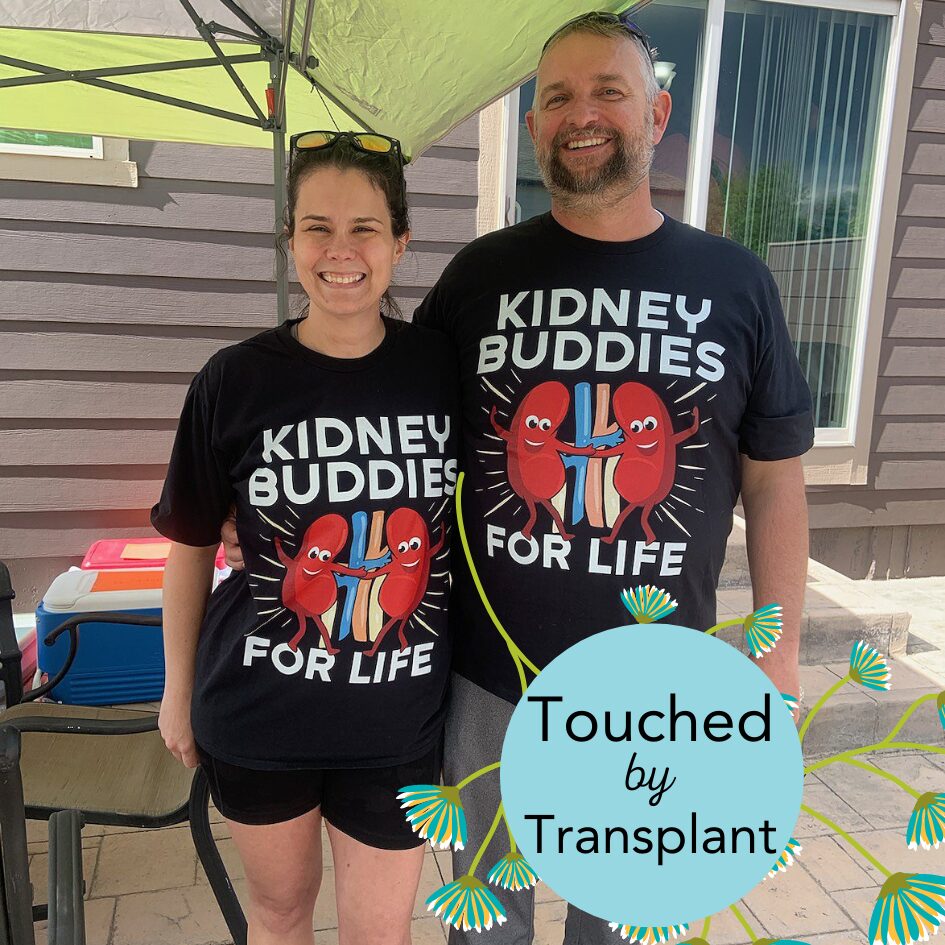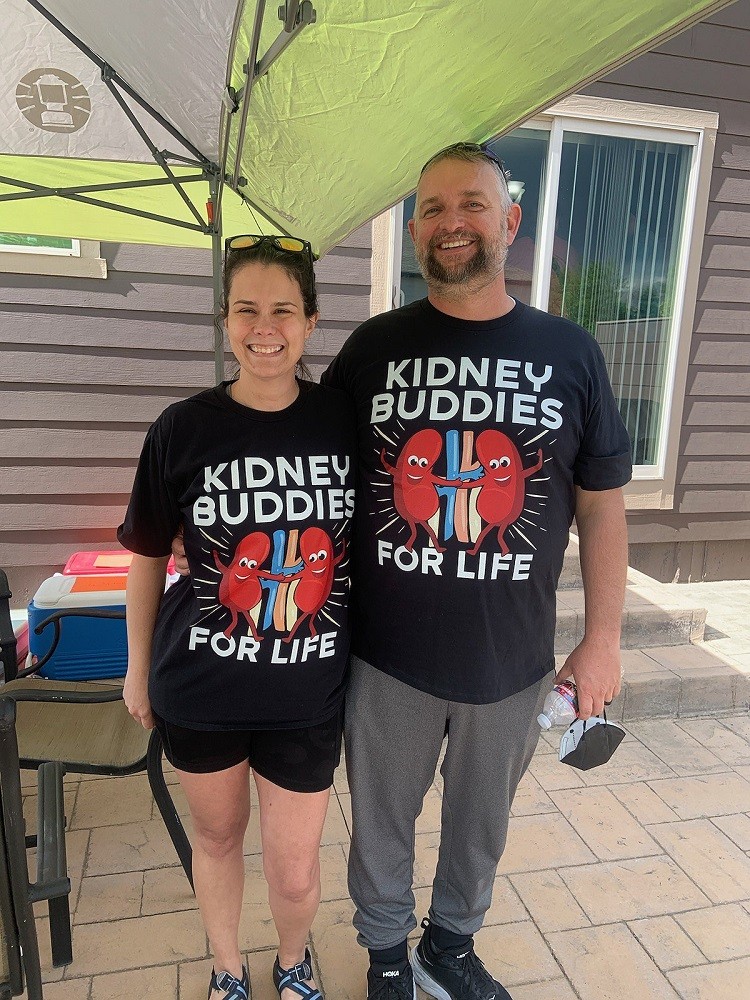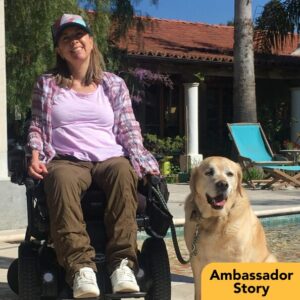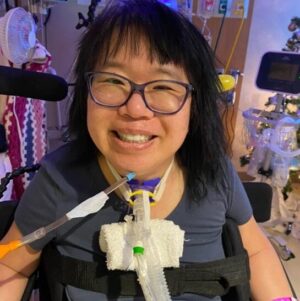Living with genetic polycystic kidney disease, father and husband Josh Raymond received a life-changing kidney transplant in May 2023.
Josh’s community has raised over $14,000 in his honor since April 2023—exceeding his first $10,000 fundraising goal with Help Hope Live.
We asked Josh to reflect on the gift of life, his living donor, and the impact of community support.

I was 23 when I was diagnosed with polycystic kidney disease. They told me a transplant was 20 years away—and that timeline was spot on.
I became too tired to function normally. Trying to keep up with a busy work and parenting schedule for my son and daughters was just daunting.
In 2022, my nephrologist sent me to the transplant team for evaluation.
My Father's Fight
My father never made it to transplant.
Living with the same diagnosis, he started dialysis in the 90s. His kidneys were removed in 1994, and he lived on dialysis until his passing in 1999.
The man was just so tired. As a family, if we ever had the chance to take a vacation, our options were severely limited and involved a lot of extra planning to ensure he could still receive dialysis.
Kidney disease drained him, especially having to do dialysis four hours at a time, three times per week.
Misconceptions About Transplants
One of the misconceptions about transplants is the public’s image of someone needing a transplant and miraculously getting transplanted within the hour of a TV show.
That’s not how it works at all.
Most people don’t realize just how many of us need a transplant, and how long those transplant waiting lists really are.
My Living Donor and the Gift of Life
When I learned I would need a kidney transplant, I went through the process of seeking out a living donor.
My donor’s name is Shiloh Jones. She is the wife of a youth minister at our church. Shiloh is all about helping others. She has the biggest heart, and she had no qualms about becoming a living kidney donor.
We were already close before, but now, we are family.

On May 9, 2023, I received a kidney transplant. What a day! My family was excited that I was finally going to be back to normal—that I could do all the things I wanted to do again without the burden of kidney disease.
My donor was so ready for it—she was more excited than me, I think!
While Shiloh and I were in surgery, our spouses decided my new kidney needed a name. They came up with “Kelly the Kidney.”
The transplant didn’t immediately change my health.
I had just received a surgery six weeks prior to the transplant, and I wasn’t fully recovered from it, so it took a little longer for me to recover and feel better.
When it happened, it was amazing: I was full of energy that I hadn’t had in years.

Choosing to Fundraise
Throughout this process, I have had to lean on others for help. That was very hard on me.
Asking for help felt like being a passenger rather than being in the driver’s seat.
In the end, it was a good experience not just for me but for my family as well. Watching them step up to help when I couldn’t was hard for me, but we all knew it was better for my health in the long run.
I learned about the costs that would come along with this transplant when I met with my transplant team. Some of those costs would include anti-rejection medication—which I will be on for life—lost wages while I was out of work, and so many medical bills.
Our transplant team gave us a packet with a flyer about Help Hope Live. Our friends had wanted to run a GoFundMe campaign, but after some research, we found out that it was not tax deductible for contributors.
Choosing Help Hope Live was easy, and a lot of people contributed because of the tax deductibility.
I was very thankful that we received so much support and exceeded our fundraising goal.
It’s amazing how generous people can be when they know exactly what they are contributing to.
My Fundraising Tip: Campaign Champions
My biggest tip for other transplant fundraising families is to find your “Campaign Champion.”
I can’t state how much it helped us to find someone who would be passionate about advocating for my fundraising campaign.
Our champion tried to reach the fundraising goal within just one week of opening with Help Hope Live—and they almost accomplished it.
What Hope Means to Me
To me, hope means being the first male in three generations in my family to live past the age of 50.
It means getting to grow old with my wife and watch our children succeed in life.
It means having a chance to say “thank you” to everyone who helped me get this far.
To fellow transplant patients: never give up hope. You might go through 50 candidates for a transplant and none of them are matches, but maybe 51 is.
You can’t give up. You must keep moving forward.

Find Josh’s transplant fundraising campaign with Help Hope Live at helphopelive.org.
Written by Emily Progin










